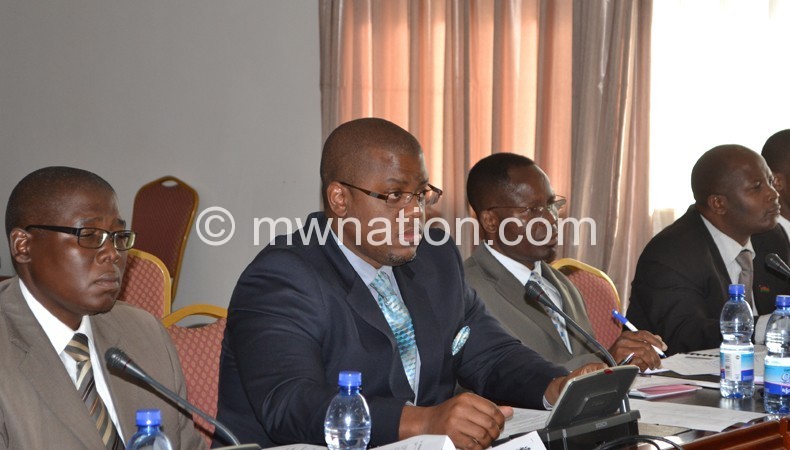Treasury blocks budget lobbying
In the wake of increased funding in the proposed 2015/16 National Budget, the Ministry of Finance, Economic Planning and Development has warned government departments and ministries against lobbying for additional resources through budget cluster meetings.
In a letter dated May 25 2015 which The Nation has seen, Secretary to the Treasury (ST) Ronald Mangani said cluster meetings only facilitate engagement with respective ministries for an in-depth understanding of what the budget intends to achieve in terms of service delivery in light of the ministry’s mandate.

The letter, addressed to all government controlling officers, reads in part: “The experience we [Treasury] had in similar meetings during the 2014/2015 budget was that the Executive arm of government did not appear before the respective committees with one position, which clearly manifested disorganisation.
“Ideally, controlling officers are expected to present to the [parliamentary] committees what they can deliver with resources available and provide highlights of challenges that they encounter in the course of executing their mandates.
“The cluster committees are not an ideal forum for lobbying for additional resources as was the case. This is based on the understanding that the Executive would be collectively presenting its case for Parliament to consider and propose necessary changes from an informed position during the budget.”
But in an interview yesterday, Lingson Belekanyama, chairperson of Public Appointments Committee (PAC) of Parliament and Cluster Eight for budget scrutiny, faulted the ST’s warning, saying Mangani’s remarks are not practical.
Belekanyama said the issues being raised are inevitable because there are certain projects in ministries which have delayed for long and there is no hope of them ever being finalised with allocated funds.
He said: “Obviously, when we asked the departments why certain projects will not be done or have delayed [to be implemented], the answer is underfunding.”
Belekanyama added that the report on what transpired during the cluster meetings will be released in due course.
On his part, Budget and Finance Committee of Parliament chairperson Rhino Chiphiko said the budget might hit a trillion kwacha because of the outcry from underfunded government departments and ministries.
He said: “Now, the question will be, can government handle such a figure? If yes, where will the funds come from given the donors’ position? This is a very difficult situation government is in.”
In a presentation made by the National Audit Office (NAO) to three parliamentary committees—Public Accounts, Budget and Finance as well as Governance Assurance—on May 29, the department said it had inadequate resources to support capacity development which may result in poor delivery of timely and quality audits.
In the NAO budget, there is no allocation of funds to audit local councils which now handle billions of kwacha in the wake of decentralisation.
Besides NAO, the Office of the Directorate of Public Procurement (ODPP) also appealed for increased funding.
Minister of Finance, Economic Planning and Development on May 22 this year presented the proposed K901 billion budget of the 2015/16 financial year based on the zero aid concept following a lack of commitment from development partners.
In the proposed budget, most development partners—except the African Development Bank (AfDB)—are opting for off-budget support.





